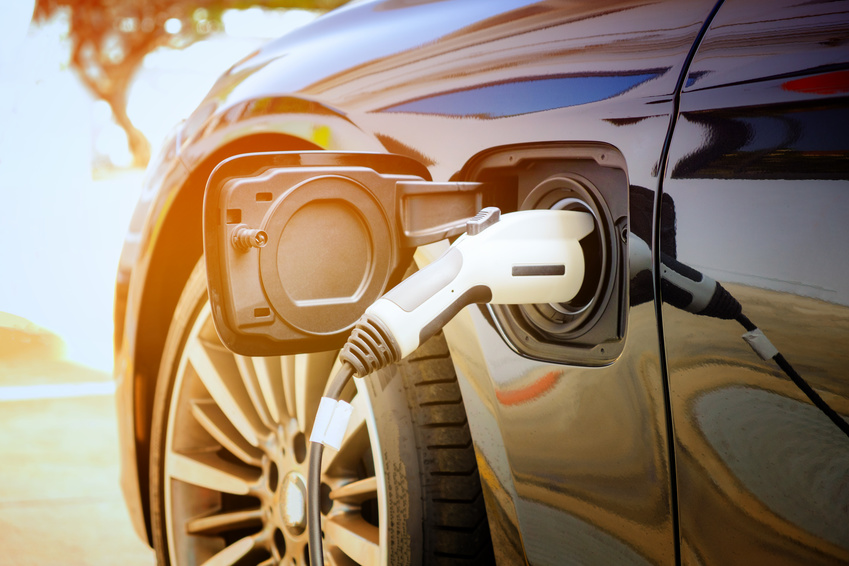A pure waste – Governments should not subsidize the purchase of electric cars

In its recently tabled budget, the federal government announced a new $5,000 subsidy for the purchase of an electric car, which is in addition to those already offered by other levels of government. This subsidy, like those that already exist, will have a much larger effect on public finances than on the environment.
The MEI calculated, in 2017, the cost of Quebec subsidies per tonne of greenhouse gases (GHGs) not emitted. Quebec reimburses up to $8,600 for the purchase of an electric car and a home charging station. As an electric car emits around 30 tonnes of GHGs less than a conventional vehicle over its lifecycle, the cost for each tonne of GHGs not emitted by replacing a gas-powered car by an electric vehicle is just under $300.
This is very high. In Quebec, the cost to avoid the emission of a tonne of GHGs is currently around $20 on the carbon market. The federal tax also sets a price of $20 in the provinces where it applies. So, $300 versus $20, for two policies that aim to achieve the same objective.
When Ottawa’s additional subsidy of $5,000 is included in the calculation, the total cost of the subsidies to eliminate one tonne of GHGs increases to over $450, or 23 times more than the carbon market price or the federal tax! Even taking into account that the latter will rise to $50 in 2022, the cost of the electric car purchase rebate remains nine times higher.
Millions squandered
Since 2012, the Quebec government has spent more than $220 million to “assist” the purchase of 47,500 vehicles and nearly 13,000 residential changing stations. Hydro-Québec has spent $25 million for a still underutilized network of charging stations, and plans to add $130 million more over the next ten years. The federal government plans to add $300 million in purchase subsidies over three years, as well as $130 million to extend the country’s network of charging stations. All of this for minimal results in terms of emission reductions.
It’s already problematic in itself; it becomes even more so when you note that these funds largely benefit people who would have bought an electric car even without subsidies, and that these same buyers are part of the richest one fifth of society. Moreover, a non-negligible portion of subsidies are captured by automobile manufacturers in the form of higher prices. The American government recently reduced the credit applicable to the purchase of a Tesla from $7,500 to $3,750; Elon Musk’s company responded by lowering its prices by $2,000.
Another argument in favour of the elimination of these subsidies is their very limited effect. Even if Quebec achieved its objective of having one million fully electric vehicles on the province’s roads by 2030—or twenty times more than the current number, which also includes hybrids—it would only reduce our GHG emissions by 3.6% from their current level. In sum, many more gas-powered vehicles would have to be removed from Quebec roads to have a significant effect. (Quebec now has some five million cars and light trucks on its roads.)
The good news is that this day is probably not as far away as we think, and that it won’t require opening the subsidy taps even further. Studies predict that the prices of electric cars will be competitive with those of gas-powered cars as of 2024—without subsidies!—and that they will then continue to decrease, achieving parity before the end of the decade, with the cost of batteries continuing to fall.
Why? Because the forces of the market are at work. Automobile manufacturers have spent, and will continue to spend, billions of dollars to develop zero emission cars, to sell them at the lowest possible price, and to stand out from their competitors. When, in the near future, affordable cars with good range are available, Quebecers will naturally choose them. All of the money spent by our governments between now and then will just be a costly waste of public funds that will have little effect on our environmental record.
Quebec and Canada have already established a price on carbon. According to the latest economist to win the Nobel Prize, William Nordhaus, such a price mechanism should replace all subsidies that have the same goal. It’s just common sense. Quebec and Ottawa would do well to listen to Nordhaus, and eliminate their subsidy programs for the purchase of electric cars.
Germain Belzile and Patrick Déry are respectively Senior Associate Researcher and Senior Public Policy Analyst at the MEI. The views reflected in this op-ed are their own.
____________________
Read more articles on the themes of “Environment” and “Energy Policies.”

